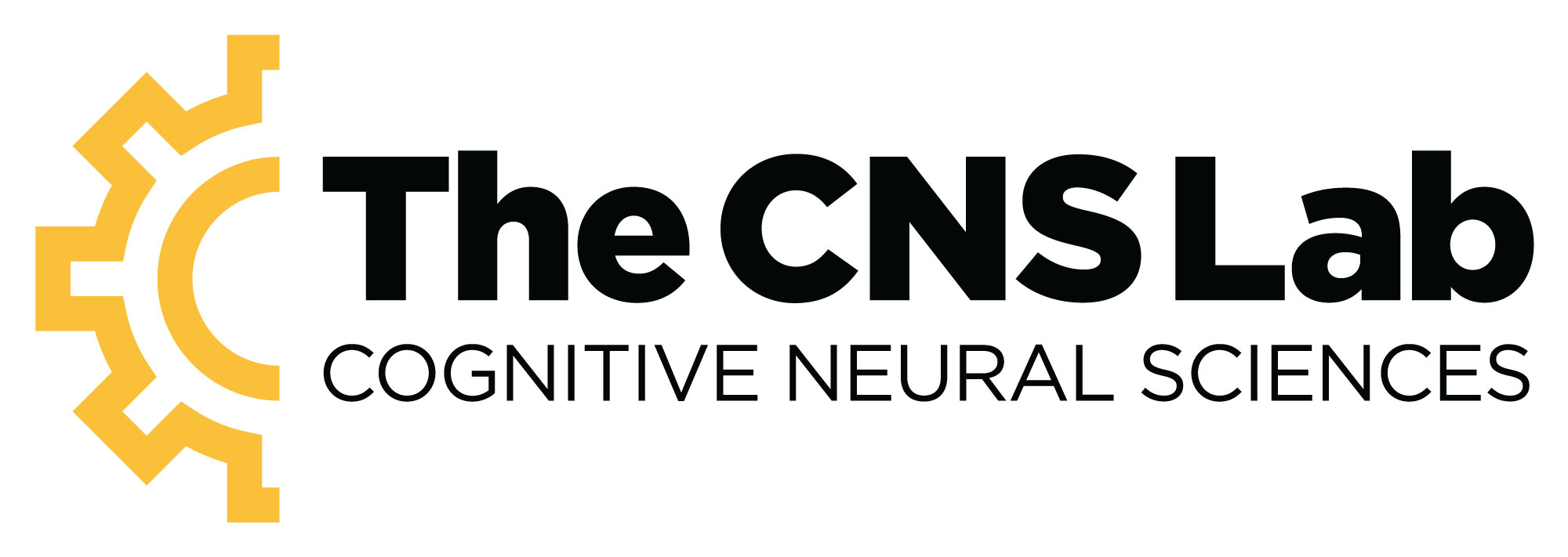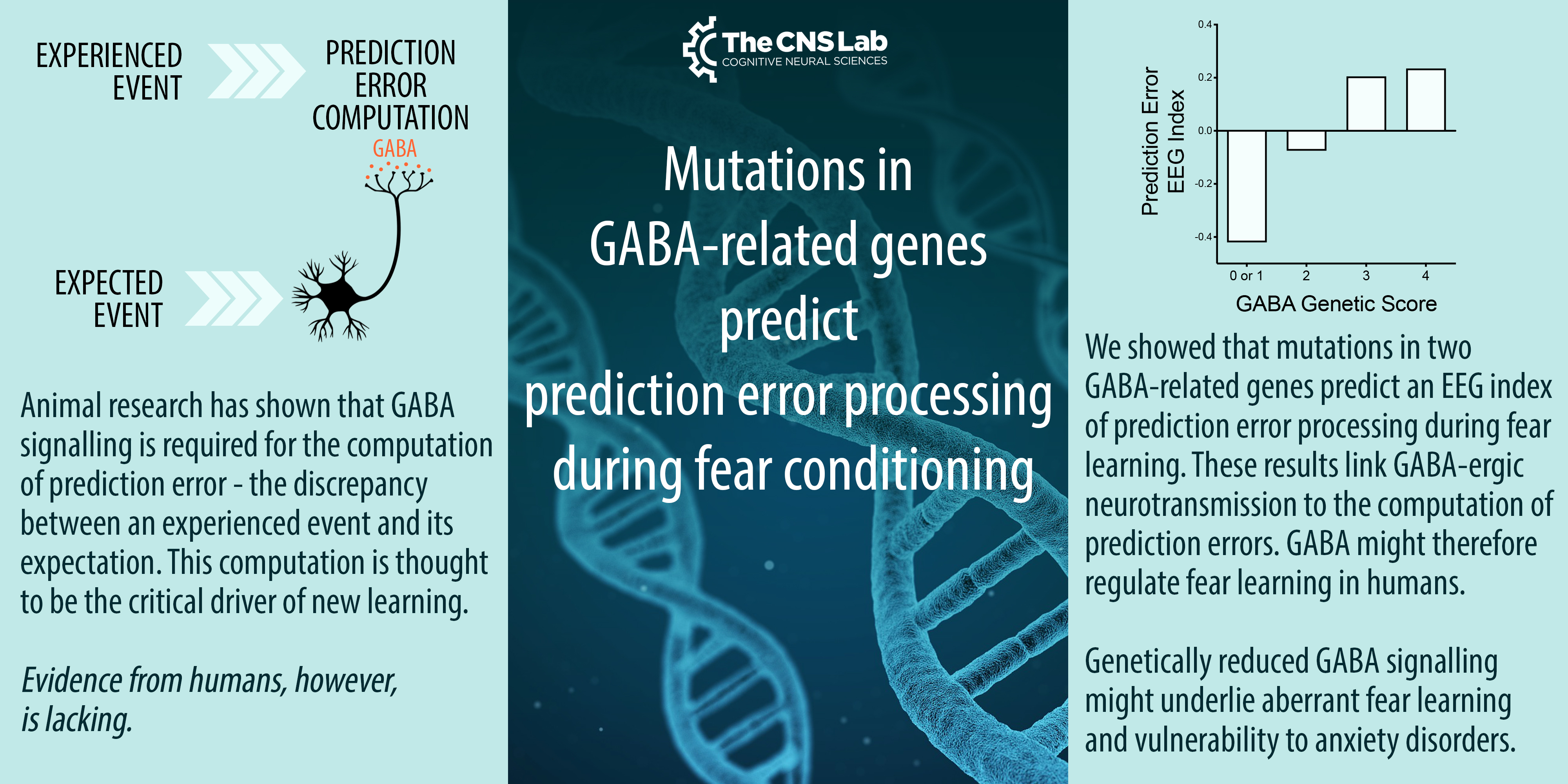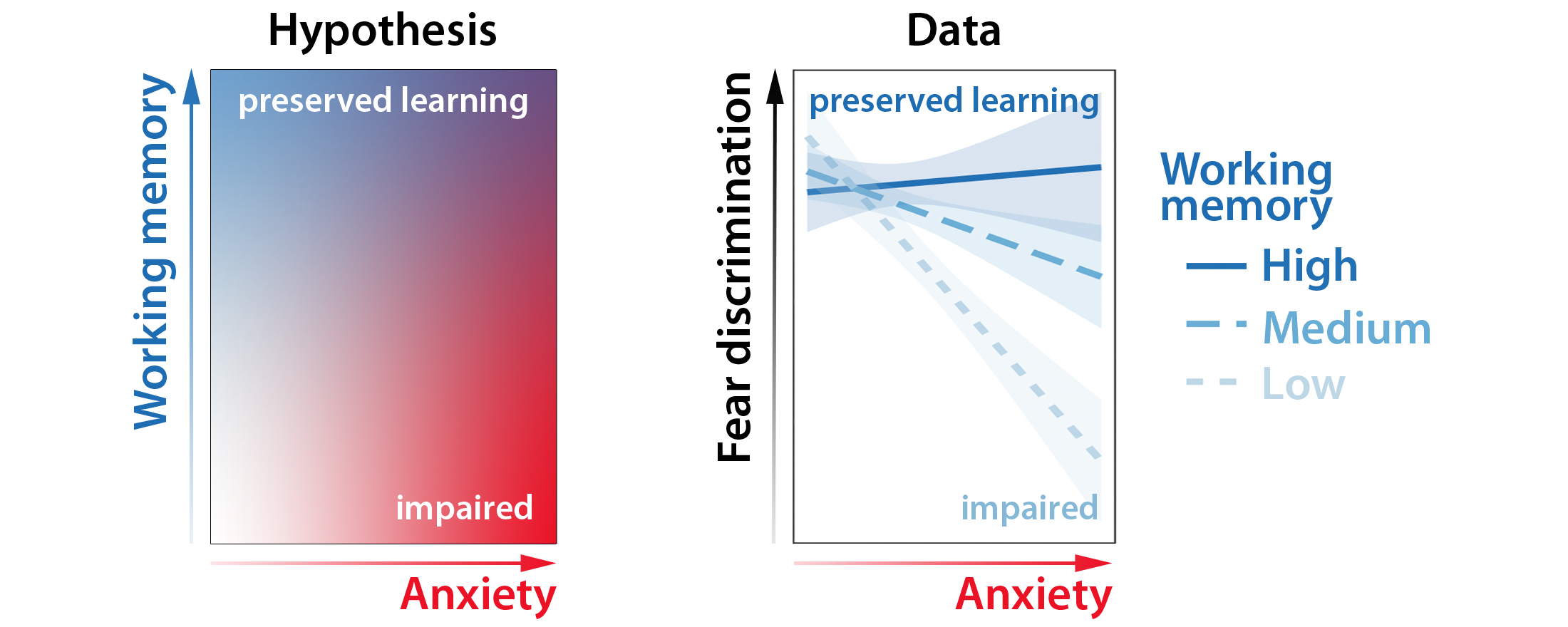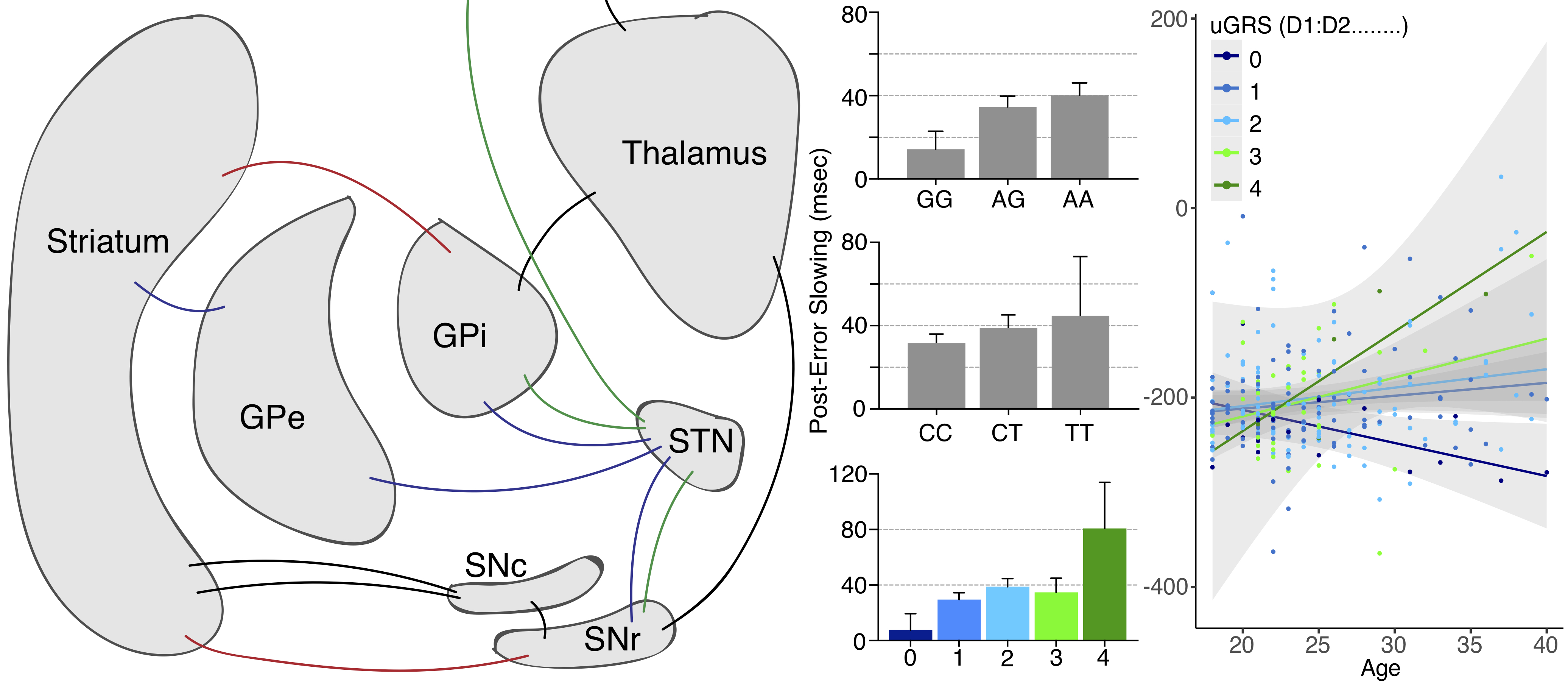Dr Irina Baetu
Senior Lecturer
School of Psychology
College of Education, Behavioural and Social Sciences
Eligible to supervise Masters and PhD - email supervisor to discuss availability.
Cognitive Neural Sciences Laboratory 
We are broadly interested in cognition and emotion and their neural underpinnings. We investigate how we learn from our experiences and how this learning guides our choices, as well as how we are able to exert cognitive control. These abilities are critical to our everyday functioning since making optimal decisions based on past experience ensures that we maximise positive outcomes and minimise aversive consequences. We study how these abilities change during ageing and in Parkinson’s disease. We are especially interested in discovering genetic variation that may help us preserve these abilities, as this might help the development of new treatments for cognitive decline. We are also interested in emotion, both negative and positive. For example, we study how learning from negative experiences influences feelings of anxiety, and how music can be tailored to optimise positive emotions.
Members
Dr Irina Baetu
Prof Nick Burns
Nathan Beu
Lauren Heidenreich
Brittany Child
Nathan Jones
Isaac Saywell
Collaborators
Dr Lyndsey Collins-Praino
A/Prof Sarah Cohen-Woods
Prof Mark Jenkinson
A/Prof Ahmed Moustafa
Current projects
Learning and decision-making changes over the course of healthy ageing and in Parkinson’s disease
Our genome makes each of us unique, which means we have different strengths and different weaknesses. Because of this, our cognitive abilities are impacted differently as we age, or if we are affected by a brain disorder such as Parkinson’s disease. As a result, we may require different treatment approaches if we experience cognitive dysfunction. But our knowledge of genetic influences on cognition is still in its infancy, which limits our capacity to tailor our treatments to each individual. Therefore, we investigate the relationship between people’s genetic makeup and their cognitive abilities. We focus in particular on healthy ageing and Parkinson’s disease. We investigate not only how genetic mutations influence the extent to which people’s cognition is affected by ageing or by the disease, but also, in the case of patients, how they respond to medication. This gives us important clues for developing more effective treatments for cognitive dysfunction that take into account individual differences, and we hope this knowledge will be useful for treating other brain disorders too.
Mechanisms underlying response inhibition and cognitive control
We also investigate motor functions, including action selection and inhibition. The ability to inhibit prepotent responses, in particular, is considered a core executive function that seems to be compromised in a number of disorders. We investigate cognitive processes that contribute to response inhibition, such as fluctuations in attention associated with error processing, which allows us to gain a deeper understanding of individual differences in performance and the factors that contribute to suboptimal performance.
Beu, N., Burns, N., & Baetu, I. (2019). Polymorphisms in dopaminergic genes predict proactive processes of response inhibition. European Journal of Neuroscience, 49(9), 1127-1148. We show that slowing response speed after an error, a potential compensatory strategy when response inhibition fails, can be predicted by age, intelligence, and genetic variation in dopaminergic genes.
Learning processes and individual differences
Learning from past experience is one of our most fundamental abilities: We detect regularities in our environment, which enables us to predict future events, plan actions, and guide our attention to the most relevant stimuli in our environment. Although everyone seems to be capable of such learning, there are known differences in the way people learn associations. For instance, genes that affect the expression of certain chemicals and receptors in the brain seem to influence the ability to form new memories. The ability to learn associations also depends upon basic stimulus processing abilities, which are typically measured in the field of intelligence and psychometric testing. Furthermore, people who suffer from certain clinical disorders, such as schizophrenia and anxiety, differ in the way they learn new associations. We use computational models to simulate individual differences in learning, with the aim to gain a deeper understanding of the mechanisms that generate differences in memory performance.
Baetu, I., Pitcher, J., Cohen-Woods, S., Lancer, B., Beu, N., Foreman, L., Taylor, P., & Burns, N. (2018). Polymorphisms that affect GABA neurotransmission predict processing of aversive prediction errors in humans. NeuroImage, 176, 176-192. Our results suggest that genetic variation in GABAergic genes influences learning from negative experiences by affecting the processing of aversive prediction errors.
Laing, P., Burns, N., & Baetu, I. (2019). Individual differences in anxiety and fear learning: The role of working memory capacity. Acta Psychologica, 193, 42-54. We show that working memory capacity moderates the relationship between fear learning and anxiety.

Individual differences in motor sequence learning
We recently developed a new motor sequence learning task that assesses learning via both changes in reaction time and accuracy (Urry, Burns & Baetu, 2015), potentially overcoming some of the drawbacks of the serial reaction time task, the typical test used to assess sequence learning. Using computational modelling, we demonstrated that learning from prediction errors (the discrepancy between the experienced versus anticipated feedback) in this task correlates with polymorphisms in the dopamine D1 and D2 receptor genes (Baetu, Burns, Urry, Barbante & Pitcher, 2015), providing a potential mechanism through which the dopamine system might contribute to sequence learning. We are now using this task to further explore how genetic variation influences motor learning during the course of healthy ageing and in Parkinson’s disease, as well as to investigate which aspects of motor learning are affected by transcranial direct current stimulation (tDCS) to the motor cortex.

Urry, K., Burns, N., & Baetu, I. (2015). Accuracy-based measures provide a better measure of sequence learning than reaction time-based measures. Frontiers in Psychology, 6, 1158-1-1158-14. Paper describing our new motor sequence learning task.
Baetu, I., Burns, N., Urry, K., Barbante, G., & Pitcher, J. (2015). Commonly-occurring polymorphisms in the COMT, DRD1 and DRD2 genes influence different aspects of motor sequence learning in humans. Neurobiology of Learning and Memory, 125, 176-188. We show that dopamine D1 and D2 receptor genes influence learning to select versus inhibit action plans, consistent with the classical basal ganglia model of action selection.
Urry, K., Burns, N., & Baetu, I. (2018). Age-related differences in sequence learning: Findings from two visuo-motor sequence learning tasks. British Journal of Psychology, 109(4), 830-849. Our results suggest that motor sequence learning does decline with age, but the more typically used reaction time measures may fail to detect this decline because of their poorer reliability.
Learning-driven changes in attention
Learning to associate a neutral stimulus with an important event often results in changes in the way the neutral stimulus is processed and attended to. This project investigates learning-related changes in attention to stimuli that signal important outcomes. Although this is a well-established phenomenon, the mechanism(s) that drive these changes in stimulus processing are still debated. The aim is to test theories of attention (Esber & Haselgrove, 2011; Le Pelley, 2004; Mackintosh, 1975; Pearce & Hall, 1980) using both behavioural indices and event-related potentials that reflect changes in stimulus processing.
Russo, S., Burns, N., & Baetu, I. (in press). Mackintosh, Pearce-Hall and time: An EEG study on inhibition of return. Biological Psychology. New study showing that attention may dynamically change over time, with reliable predictors attracting attention before stimuli that have unpredictable consequences.
Music and emotion
More recently, we have begun investigating positive emotion (deviating ‘slightly’ from our more traditional study of fear learning and anxiety!). We are particularly interested in non-invasive and cost-effective ways to improve emotion and wellbeing, such as music. We are creating new music for this purpose, which enables us to independently manipulate different features, such as the valence of the lyrics. Measuring emotion is also an important aspect of this project and we are attempting some innovative measures such as analysing voice patterns using machine learning algorithms and brain activity recorded via EEG.
Media
Linking genetics to individual differences in fear learning (Australian Genome Research Facility - client story)
New funding to study Parkinson’s disease (NeuroSurgical Research Foundation and University of Adelaide links)
New research from Nathan Jones showing that the effect of music on emotion and wellbeing depends on lyrics (The Advertiser)
| Date | Position | Institution name |
|---|---|---|
| 2015 - ongoing | Senior Lecturer | University of Adelaide |
| 2014 - 2017 | ARC Discovery Early Career Researcher | University of Adelaide |
| 2011 - 2014 | Lecturer | University of Adelaide |
| 2010 - 2011 | Postdoctoral Researcher, funded by the Fonds Québécois de la Recherche sur la Nature et les Technologies | University of Cambridge |
| Date | Type | Title | Institution Name | Country | Amount |
|---|---|---|---|---|---|
| 2010 | Award | New Investigator Award | American Psychological Association, Division of Experimental Psychology | United States | - |
| Date | Institution name | Country | Title |
|---|---|---|---|
| 2010 | McGill University | Canada | PhD in Psychology |
| 2001 | McGill University | Canada | BSc (Major in Psychology, Minor Concentration in German Studies) |
| Year | Citation |
|---|---|
| 2025 | Ellul, B., McNamara, A., Laurenz, S., Baetu, I., Jenkinson, M., & Collins-Praino, L. E. (2025). Predicting Cognition and Affective Changes in Newly Diagnosed Parkinson’s Disease Through Longitudinal Data-Driven Clustering. Journal of Geriatric Psychiatry and Neurology, 17 pages. Scopus1 WoS1 Europe PMC1 |
| 2025 | McNamara, A., Ellul, B. P., Baetu, I., Jenkinson, M., Lau, S., & Collins-Praino, L. (2025). Utility of Baseline Pathological, Neuroimaging and Clinical Markers for Prognosis in Early Parkinson's Disease.. J Geriatr Psychiatry Neurol, 8919887251397641. |
| 2025 | Salamon, J., Nicholls, M., Baetu, I., Nicoll, D., & Griffiths, O. (2025). Training SONAR spatial interpretation using virtual reality. Cognitive Research Principles and Implications, 10(1), 77. |
| 2025 | Child, B., Beu, N., Saywell, I., da Silva, R., Collins-Praino, L., & Baetu, I. (2025). Cognitive function in different motor subtypes of Parkinson's disease: A systematic review and multilevel meta-analysis.. Cognitive, affective & behavioral neuroscience. |
| 2025 | Foreman, L., Child, B., Saywell, I., Collins-Praino, L., & Baetu, I. (2025). Cognitive reserve moderates the effect of COVID-19 on cognition: A systematic review and meta-analysis of individual participant data. Neuroscience and Biobehavioral Reviews, 171, 31 pages. Scopus1 WoS2 Europe PMC2 |
| 2025 | McNamara, A., Baetu, I., & Collins-Praino, L. (2025). History of Traumatic Brain Injury Does Not Influence Rate of Progression of Clinical or Pathological Outcomes in Two Early Parkinson's Disease Cohorts.. Eur J Neurol, 32(3), e70090. |
| 2024 | Saywell, I., Foreman, L., Child, B., Phillips-Hughes, A. L., Collins-Praino, L., & Baetu, I. (2024). Influence of cognitive reserve on cognitive and motor function in α-synucleinopathies: A systematic review and multilevel meta-analysis. Neuroscience and Biobehavioral Reviews, 161, 28 pages. Scopus6 WoS6 Europe PMC4 |
| 2024 | Child, B., Saywell, I., da Silva, R., Collins-Praino, L., & Baetu, I. (2024). Cognitive function in different motor subtypes of Parkinson's disease: A systematic review protocol.. Health Sci Rep, 7(5), e2092. Scopus2 WoS3 Europe PMC4 |
| 2023 | Saywell, I., Child, B., Foreman, L., Collins‐Praino, L., & Baetu, I. (2023). Influence of cognitive reserve on cognitive and motor function in α‐synucleinopathies: A systematic review protocol. Annals of the New York Academy of Sciences, 1522(1), 15-23. Scopus3 WoS3 Europe PMC2 |
| 2023 | Beu, N., Jayatilaka, A., Zahedi, M., Babar, A., Hartley, L., Lewinsmith, W., & Baetu, I. (2023). Falling for phishing attempts: An investigation of individual differences that are associated with behavior in a naturalistic phishing simulation. Computers and Security, 131, 1-11. Scopus16 WoS8 |
| 2023 | Beu, N., Burns, N., & Baetu, I. (2023). Post-Error Slowing May Not Be Proactive: Electrophysiological evidence favours a disorienting account. |
| 2022 | Beu, N., Burns, N., & Baetu, I. (2022). Measurement of the response inhibition network in a brief battery of tasks: Introducing an assessment of reactive and proactive inhibition processes.. |
| 2022 | Beu, N., Jayatilaka, A., Zahedi, M., Babar, A., Hartley, L., Lewinsmith, W., & Baetu, I. (2022). Falling for phishing attempts: An investigation of individual differences that are associated with behavior in a naturalistic phishing simulation. |
| 2021 | Griffiths, O., Gwinn, O. S., Russo, S., Baetu, I., & Nicholls, M. E. R. (2021). Reinforcement history shapes primary visual cortical responses: an SSVEP study. Biological Psychology, 158, 108004-1-108004-10. Scopus1 |
| 2021 | El-Gamal, M., Salama, M., Collins-Praino, L. E., Baetu, I., Fathalla, A. M., Soliman, A. M., . . . Moustafa, A. A. (2021). Neurotoxin-Induced Rodent Models of Parkinson’s Disease: Benefits and Drawbacks. Neurotoxicity Research, 39(3), 827-923. Scopus28 WoS26 Europe PMC23 |
| 2021 | Jayatilaka, A., Beu, N., Baetu, I., Zahedi, M., Babar, M. A., Hartley, L., & Lewinsmith, W. (2021). Evaluation of Security Training and Awareness Programs: Review of Current Practices and Guideline. |
| 2020 | Sheynin, J., Baetu, I., Collins-Praino, L. E., Myers, C. E., Winwood-Smith, R., & Moustafa, A. A. (2020). Maladaptive avoidance patterns in Parkinson's disease are exacerbated by symptoms of depression. Behavioural Brain Research, 382, 112473-1-112473-9. Scopus4 WoS2 Europe PMC3 |
| 2019 | Baetu, I., & Baker, A. G. (2019). Reasoning about redundant and non-redundant alternative causes of a single outcome: blocking or enhancement caused by the stronger cause. Quarterly Journal of Experimental Psychology, 72(2), 238-250. Scopus4 WoS3 Europe PMC1 |
| 2019 | Russo, S. S., Burns, N., & Baetu, I. (2019). Mackintosh, pearce-hall and time: An EEG study on Inhibition of return. Biological Psychology, 146, 12 pages. Scopus4 WoS4 Europe PMC1 |
| 2019 | Laing, P. A. F., Burns, N., & Baetu, I. (2019). Individual differences in anxiety and fear learning: The role of working memory capacity. Acta Psychologica, 193, 42-54. Scopus13 WoS12 Europe PMC9 |
| 2019 | Beu, N. D., Burns, N. R., & Baetu, I. (2019). Polymorphisms in dopaminergic genes predict proactive processes of response inhibition. European Journal of Neuroscience, 49(9), 1069-1209. Scopus5 WoS5 Europe PMC5 |
| 2019 | Hofmann, J., Keage, H., Callahan, R., Coussens, S., Churches, O., & Baetu, I. (2019). Neural indices of associative learning in pre-adolescents: An event-related potential study. Brain and Cognition, 130, 11-19. Scopus1 WoS1 Europe PMC1 |
| 2018 | Baetu, I., Burns, N., Yu, E., & Baker, A. (2018). Fluid abilities and rule learning: patterning and biconditional discriminations. Journal of Intelligence, 6(1), 7-1-7-17. Scopus2 |
| 2018 | Baetu, I., Pitcher, J., Cohen-Woods, S., Lancer, B., Beu, N., Foreman, L., . . . Burns, N. (2018). Polymorphisms that affect GABA neurotransmission predict processing of aversive prediction errors in humans. NeuroImage, 176, 176-192. Scopus4 WoS5 Europe PMC4 |
| 2018 | Urry, K., Burns, N., & Baetu, I. (2018). Age-related differences in sequence learning: findings from two visuo-motor sequence learning tasks. British Journal of Psychology, 109(4), 830-849. Scopus10 WoS9 Europe PMC7 |
| 2015 | Urry, K., Burns, N., & Baetu, I. (2015). Accuracy-based measures provide a better measure of sequence learning than reaction time-based measures. Frontiers in Psychology, 6, 1158-1-1158-14. Scopus18 WoS18 Europe PMC10 |
| 2015 | Baetu, I., Burns, N., Urry, K., Barbante, G., & Pitcher, J. (2015). Commonly-occurring polymorphisms in the COMT, DRD1 and DRD2 genes influence different aspects of motor sequence learning in humans. Neurobiology of Learning and Memory, 125, 176-188. Scopus24 WoS23 Europe PMC20 |
| 2014 | Barberia, I., Baetu, I., Sansa, J., & Baker, A. (2014). When is a cause the "same"? Incoherent generalization across contexts. Quarterly Journal of Experimental Psychology, 67(2), 281-303. Scopus2 WoS2 Europe PMC2 |
| 2012 | Baetu, I., & Baker, A. (2012). Are preventive and generative causal reasoning symmetrical? Extinction and competition. Quarterly Journal of Experimental Psychology, 65(9), 1675-1698. Scopus8 WoS7 Europe PMC6 |
| 2011 | Barberia, I., Baetu, I., Murphy, R., & Baker, A. (2011). Do Associations Explain Mental Models of Cause?. International Journal of Comparative Psychology, 24, 365-388. |
| 2011 | Baetu, I., Barberia, I., Murphy, R., & Baker, A. (2011). Maybe this old dinosaur isn't extinct: what does Bayesian modeling add to associationism?. Behavioral and Brain Sciences, 34(4), 190-191. Scopus2 WoS2 |
| 2010 | Barberia, I., Baetu, I., Sansa, J., & Baker, A. (2010). Choosing optimal causal backgrounds for causal discovery. Quarterly Journal of Experimental Psychology, 63(12), 2413-2431. Scopus2 WoS1 Europe PMC1 |
| 2010 | Baetu, I., & Baker, A. (2010). Extinction and blocking of conditioned inhibition in human causal learning. Learning & Behavior, 38(4), 394-407. Scopus18 WoS16 Europe PMC9 |
| 2009 | Baetu, I., & Baker, A. (2009). Human judgments of positive and negative causal chains. Journal of Experimental Psychology-Animal Behavior Processes, 35(2), 153-168. Scopus23 WoS18 Europe PMC11 |
| 2009 | Baker, A., Baetu, I., & Murphy, R. (2009). Propositional learning is a useful research heuristic but it is not a theoretical algorithm. Behavioral and Brain Sciences, 32(2), 199-200. Scopus1 WoS1 |
| 2009 | Darredeau, C., Baetu, I., Baker, A., & Murphy, R. (2009). Competition between multiple causes of a single outcome in causal reasoning. Journal of Experimental Psychology-Animal Behavior Processes, 35(1), 1-14. Scopus8 WoS8 Europe PMC2 |
| 2005 | Baetu, I., Baker, A., Darredeau, C., & Murphy, R. (2005). A comparative approach to cue competition with one and two strong predictors. Learning and Behavior, 33(2), 160-171. Scopus12 WoS11 Europe PMC4 |
| Year | Citation |
|---|---|
| 2016 | Baetu, I., Pitcher, J., Urry, K., & Burns, N. (2016). Polymorphisms in the dopamine receptor D1 and D2 genes contribute to individual differences in sequence learning. In INTERNATIONAL JOURNAL OF PSYCHOLOGY Vol. 51 (pp. 824). ROUTLEDGE JOURNALS, TAYLOR & FRANCIS LTD. |
| 2010 | Baetu, I., & Shultz, T. (2010). Development of prototype abstraction and exemplar memorization. In S. Ohlsson, & R. Catrambone (Eds.), Proceedings of the 32nd Annual Conference of the Cognitive Science Society (pp. 814-819). www: Cognitive Science Society. WoS5 |
| Year | Citation |
|---|---|
| 2023 | McNamara, A., Ellul, B., Baetu, I. -I., Lau, S., Jenkinson, M., & Collins-Praino, L. (2023). Utility of Baseline Pathological, Neuroimaging and Clinical Markers for Progression Prognosis and Subtype Classification in Early Parkinson's Disease: Implications for Cognitive Impairment. Poster session presented at the meeting of Abstracts of the Alzheimer's Association International Conference (AAIC 2023), as published in Alzheimer's & Dementia Journal. Amsterdam, The Netherlands: Wiley. DOI |
| 2023 | McNamara, A., Ellul, B., Baetu, I. -I., Lau, S., Jenkinson, M., & Collins-Praino, L. (2023). Predicting progression of Parkinson’s disease motor outcomes using a multimodal combination of baseline clinical measures, neuroimaging and biofluid markers. Poster session presented at the meeting of Abstracts of the 6th World Parkinson Congress, as published in Journal of Parkinson's Disease. Barcelona, Spain: IOS Press. DOI |
| 2023 | Ellul, B., McNamara, A., Baetu, I., Lau, S., Jenkinson, M., & Collins-Praino, L. (2023). Predicting longitudinal cognition and mood changes in newly diagnosed Parkinson's Disease from substantia nigra imaging (Oral Presentation). Poster session presented at the meeting of ACNS Conference Sydney 2023. https://drive.google.com/drive/folders/1Ixovo4O6LZNfSrf4S0Ds6vkbmyayHHEt. |
| 2022 | McNamara, A., Ellul, B., Baetu, I., Lau, S., Jenkinson, M., & Collins-Praino, L. (2022). Predicting Progression of Parkinson’s Disease Motor Outcomes Using a Multimodal Combination of Baseline Clinical Measures, Neuroimaging and Biofluid Markers in Early PD. Poster session presented at the meeting of Australasian Neuroscience Conference 2022. Melbourne. |
| 2022 | Ellul, B., McNamara, A., Baetu, I., Lau, S., Jenkinson, M., & Collins-Praino, L. (2022). The role of the substantia nigra in predicting longitudinal cognitive and mood changes in newly diagnosed Parkinson’s Disease. Poster session presented at the meeting of Australasian Neuroscience Conferences 2022. Melbourne, Australia. |
| 2019 | Child, B. D., Baetu, I., Collins-Praino, L., Salamon, J., & Burns, N. (2019). Reinforcement learning in Parkinson's disease: Do motor symptoms predict performance?. Poster session presented at the meeting of Florey Postgraduate Research Conference. Adelaide, Australia. |
| 2019 | Child, B. D., Baetu, I., Collins-Praino, L., & Burns, N. (2019). Reinforcement learning in Parkinson’s disease: Do motor symptoms predict performance?. Poster session presented at the meeting of 28th Annual Meeting of the International Behavioral Neuroscience Society. Cairns, Australia. |
| 2018 | Beu, N., Burns, N., & Baetu, I. (2018). Polymorphisms in dopaminergic genes predict proactive inhibition in a Go/No Go task. Poster session presented at the meeting of BEHAVIOR GENETICS. MA, Boston: SPRINGER. |
| 2018 | Beu, N., Burns, N., & Baetu, I. (2018). Polymorphisms in dopaminergic genes predict proactive inhibition in a Go/No-Go task. Poster session presented at the meeting of Conference programme: 48th Behavior Genetics Annual Meeting 2018. Cambridge, USA: Behavior Genetics Association. |
| 2018 | Beu, N. D., Burns, N. R., & Baetu, I. (2018). Polymorphisms in dopaminergic genes predict proactive inhibition in a Go/No-Go task. Poster session presented at the meeting of Forum for European Neuroscience Societies Forum of Neuroscience. Berlin, Germany. |
| 2018 | Child, B. D., Baetu, I., & Burns, N. (2018). Watch and learn: Identifying optimal conditions for learning. Poster session presented at the meeting of The University of Adelaide Undergraduate Research Conference. Adelaide, Australia. |
| 2018 | Child, B. D., Baetu, I., & Burns, N. (2018). Watch and learn: The effects of time delays and interfering events on our ability to learn. Poster session presented at the meeting of Florey Postgraduate Research Conference. Adelaide, Australia. |
| 2018 | Child, B. D., Baetu, I., & Burns, N. (2018). Individual differences in working memory capacity predict performance on an associative learning task. Poster session presented at the meeting of Australian Psychological Society Congress. Sydney, Australia. |
| 2016 | Baetu, I., Pitcher, J., Urry, K., & Burns, N. (2016). Individual differences in sequence learning correlate with polymorphisms in dopaminergic genes. Poster session presented at the meeting of Personality and Individual Differences. Elsevier BV. DOI |
| 2016 | Burns, N., Baetu, I., & Urry, K. (2016). Implicit learning: the Serial Reaction Time Task and intelligence. Poster session presented at the meeting of Personality and Individual Differences. Elsevier BV. DOI |
| 2016 | Burns, N., Baetu, I., & Urry, K. (2016). Implicit learning: the Serial Reaction Time Task and intelligence. Poster session presented at the meeting of Personality and Individual Differences. Elsevier BV. DOI |
| 2016 | Beu, N. D., Burns, N. R., & Baetu, I. (2016). tDCS differentially modulates response inhibition processes disturbed by disease. Poster session presented at the meeting of Florey Postgraduate Conference. Adelaide, Australia. |
| Year | Citation |
|---|---|
| 2010 | Baetu, I. (2010). Associative and inferential accounts of extinction and blocking in causal learning. (PhD Thesis, McGill University). |
| Year | Citation |
|---|---|
| 2025 | Saywell, I., Sghirripa, S., Walls, A., Dwyer, A., Child, B., Salamon, J., . . . Baetu, I. (2025). Lifetime experiences as proxies of cognitive reserve predict cognition and motor function beyond multimodal MRI brain measures in healthy adults. DOI |
| 2025 | Sghirripa, S., Beu, N., Burns, N., Collins-Praino, L., Cohen-Woods, S., Jenkinson, M., & Baetu, I. (2025). Cognitive Reserve Buffers the Impact of Traumatic Events and Post-Traumatic Stress Symptoms on Mid- to Late-Life Cognitive Performance. DOI |
Grants and Funding
| 2020-2023 | Forecasting Impairment and Neurodegenerative Disease risk following Traumatic Brain Injury (FIND-TBI): A computational neurology-driven method to predict long-term prognosis | Collins-Praino L; Jenkinson M; Baetu I; Wells A; Gandy S; Turner R; Corrigan F; Helmy A; Mittinty N | Medical Research Future Fund | $1.98M |
| 2019-2022 | The evolution of decision-making impairment in Parkinson’s disease: Prediction and prevention | Collins-Praino L; Baetu I; Cohen-Woods S; Burns N; Griffiths O | James and Diana Ramsey Foundation | $220K |
| 2019-2021 | Investigating differences in decision-making ability in older adults: Computational modelling and neurogenetics of the basal ganglia | Baetu I; Collins-Praino L; Cohen-Woods S; Moustafa A; Burns N | Discovery Project, Australian Research Council | $443K |
| 2014-2017 | Associative learning and fluid intelligence: Computational and neurogenetic analyses | Baetu I. | Discovery Early Career Researcher Award, Australian Research Council | $395K |
Current teaching
| Psychology 1A - Learning module |
| Foundations of Health & Lifespan Development |
| Learning & Behaviour |
| Honours in Psychology |
| Date | Role | Research Topic | Program | Degree Type | Student Load | Student Name |
|---|---|---|---|---|---|---|
| 2022 | Principal Supervisor | Development of a New Cognitive Reserve Measure: Implications for Parkinson’s Disease and Traumatic Brain Injury | Doctor of Philosophy | Doctorate | Full Time | Mr Isaac Calvin Saywell |
| 2022 | Principal Supervisor | Development of a New Cognitive Reserve Measure: Implications for Parkinsons Disease and Traumatic Brain Injury | Doctor of Philosophy | Doctorate | Full Time | Mr Isaac Calvin Saywell |
| 2018 | Principal Supervisor | An Exploration of the Role of Working Memory in Associative Learning | Doctor of Philosophy | Doctorate | Part Time | Miss Brittany Dorothy Amelia Child |
| 2018 | Principal Supervisor | An Exploration of the Role of Working Memory in Associative Learning | Doctor of Philosophy | Doctorate | Full Time | Miss Brittany Dorothy Amelia Child |
| 2017 | Principal Supervisor | COVID-19 related cognitive impairment: Underlying mechanisms and protective factors | Doctor of Philosophy | Doctorate | Part Time | Ms Lauren Mary Heidenreich |
| 2017 | Principal Supervisor | COVID-19 related cognitive impairment: Underlying mechanisms and protective factors | Doctor of Philosophy | Doctorate | Full Time | Ms Lauren Mary Heidenreich |
| Date | Role | Research Topic | Program | Degree Type | Student Load | Student Name |
|---|---|---|---|---|---|---|
| 2021 - 2025 | Co-Supervisor | Prediction of cognitive and mood trajectories and clinical awareness of neurodegenerative disease risk following traumatic brain injury | Doctor of Philosophy | Doctorate | Full Time | Mr Benjamin Paul Ellul |
| 2021 - 2025 | Co-Supervisor | Bridging the Gap Between Parkinson’s Disease and Traumatic Brain Injury: The Role of Biological Assessments for Early Detection of Neurodegenerative Disease Risk and Prognosis of Clinical Outcomes | Doctor of Philosophy | Doctorate | Full Time | Mr Angus McNamara |
| 2020 - 2024 | Co-Supervisor | Investigating the impact of individual differences and stress on decision-making performance under threat | Master of Philosophy (Medical Science) | Master | Part Time | Mr Manuel Salazar |
| 2019 - 2025 | Principal Supervisor | The Colour of Emotion: Towards a New Data-Driven Model of Affect | Doctor of Philosophy | Doctorate | Part Time | Mr Nathan Leigh Jones |
| 2017 - 2020 | Principal Supervisor | Investigating the Temporal Dynamics of Covert Visual Spatial Attention: Exploitative and Explorative Attentional Mechanisms | Doctor of Philosophy | Doctorate | Full Time | Mr Salvatore Simone Russo |
| 2016 - 2020 | Co-Supervisor | A Dual-Process Model of Response Inhibition: Insights from a Neurocognitive Perspective | Doctor of Philosophy | Doctorate | Full Time | Mr Nathan Daniel Beu |
| 2014 - 2017 | Co-Supervisor | Seeing Reason: Visuospatial Ability, Sex Differences and the Raven's Progressive Matrices | Doctor of Philosophy | Doctorate | Full Time | Miss Nicolette Amanda Reed Waschl |
| Date | Title | Engagement Type | Institution | Country |
|---|---|---|---|---|
| 2018 - ongoing | Research story | Public Community Engagement | Australian Genome Research Facility | Australia |
| Date | Role | Editorial Board Name | Institution | Country |
|---|---|---|---|---|
| 2015 - ongoing | Consulting Editor | Learning & Behavior | - | - |








